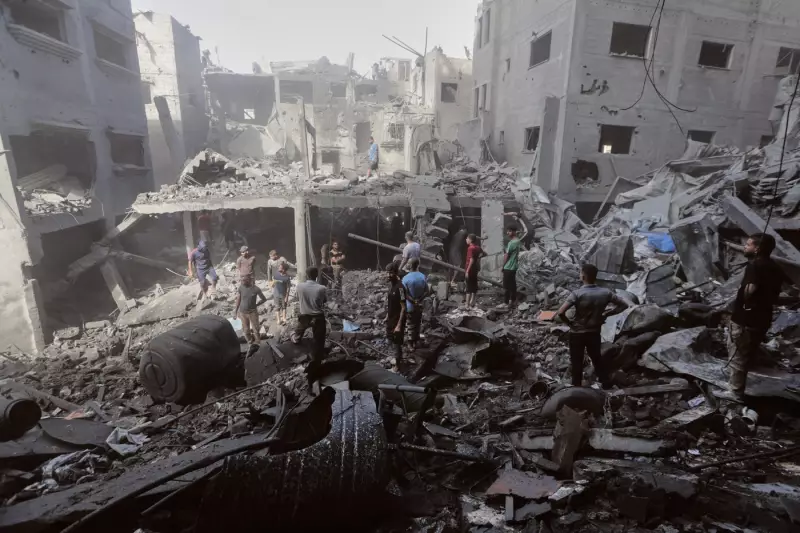
In a bold diplomatic move that could reshape the post-conflict landscape in Gaza, the United States has formally proposed the authorization of an international stabilization force to maintain security in the war-torn territory for up to two years.
The recommendation, presented to the United Nations Security Council, represents Washington's most concrete vision yet for Gaza's future security architecture amid ongoing hostilities between Israel and Hamas. The proposal suggests a multinational force would assume responsibility for public safety and order during a transitional period while Palestinian governing capacity is rebuilt.
A New Approach to Post-Conflict Stability
The American plan acknowledges the vacuum that would likely follow any cessation of major combat operations. Rather than relying on existing security structures, the U.S. envisions a dedicated international presence that would prevent the resurgence of militant activity while facilitating humanitarian operations and reconstruction efforts.
This approach marks a significant departure from previous conflict management strategies in the region. The proposed force would operate under a UN Security Council mandate, though specific details about troop composition, command structure, and rules of engagement remain under discussion among council members.
Diplomatic Challenges and Regional Reactions
The proposal comes as diplomatic efforts to secure a lasting ceasefire continue to face obstacles. Security Council members are now examining the practical implications of deploying such a force, including potential contributing countries, funding mechanisms, and the relationship between international forces and local Palestinian authorities.
Regional stakeholders have expressed mixed reactions to the concept. Some Arab nations have cautiously welcomed international involvement in stabilizing Gaza, while others have emphasized that any security arrangement must ultimately lead to Palestinian self-governance and statehood.
The Humanitarian Dimension
Beyond security concerns, the U.S. proposal recognizes the critical need to address Gaza's humanitarian catastrophe. The stabilization force would work alongside aid organizations to ensure the safe delivery of essential supplies and create conditions conducive to rebuilding critical infrastructure, including hospitals, schools, and water systems.
As Security Council deliberations continue, the international community watches closely to see whether this ambitious proposal can gain the necessary support to become reality, potentially offering a path toward lasting stability in one of the world's most volatile regions.





